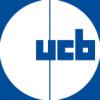- Recherche d'emploi
- Québec, QC
- data science
Data science Offres d'emploi - Québec, QC
Créer une alerte d'emploi pour cette recherche
Data science • quebec qc
- Offre sponsorisée

Enseignant •e - Poste régulier en mathématique et science
Centre de services scolaire des Hautes-RivièresMontérégie-Est (Bedford), Canada
Remote Data Administrator
FocusGroupPanelHinchinbrooke, Quebec, Canada
Senior Data Scientist III
LexisNexis Canada Inc. CompanyQuebec
DevOps – 4 Month Co-op / Internship (Fall 2024)
Intact Financial CorporationQuébec, 5700 Boul des Galeries
Medical Science Liaison, Gastroenterology, Quebec
AbbVieQuébec City, Québec, Canada
Medical Science Liasion (Quebec / Atlantic)
AstraZenecaRemote, Quebec- Nouvelle offre

Medical Science Liaison (Quebec / Atlantic)
AstellasQuebec, QC, Canada
Senior Data Architect
CoveoQuebec City- Offre sponsorisée

Data Entry Clerk (Remote)
ApexFocusGroupLévis, QC, Canada
AI Data Annotator - French Canada
WelocalizeQuébec, QC, Canada
Data Architect
Tundra Talent CommunityQuébec City, QC, Canada (On-site)
Data Specialist
LeddarTechQuébec, Quebec, Canada
Manager Data and Analytics (Data engineering)
EightSix NetworkQC
Medical Science Liaison, Oncology - Western Canada
TakedaCAN, Remote
Data Entry Clerk
KPMGQuebec, Canada- Offre sponsorisée

AI Content Writer (Flexible hours, Remote)
Data AnnotationQuebec City, Quebec
Data integration Developer
FX INNOVATIONRemote, Quebec
Data Acquisition clerk
CB CanadaQuébec, Québec, Canada
Medical Science Liaison - Immunology
UCBQuebec City, Quebec, Canada
Data Analyst
Alpe ConceptionQuebec
Enseignant •e - Poste régulier en mathématique et science
Centre de services scolaire des Hautes-RivièresMontérégie-Est (Bedford), Canada- Temps plein
Le Centre de services scolaire des Hautes-Rivières est une organisation visant la réussite scolaire des élèves. Nous nous assurons d'offrir un environnement d'apprentissage dynamique et adapté à l'évolution des besoins de nos élèves et de notre communauté.
Nous sommes à la recherche d'enseignant
- s pour des postes réguliers en mathématique et science dans nos écoles secondaires .
Salaire
52 799,00 $ à 102 857,00 $ par année selon votre scolarité et vos expériences de travail.
Les défis qui vous attendent
Instaurer un climat propice à l’apprentissage en créant un environnement stimulant et bienveillant où chaque élève se sent valorisé et soutenu.
Développer le goût et le plaisir d'apprendre chez les élèves en concevant des activités pédagogiques innovantes et engageantes.
Démontrer une attitude accueillante et respectueuse envers les élèves, favorisant ainsi un climat de confiance et de collaboration en classe.
Prendre en considération et valoriser la diversité des élèves en ajustant les méthodes d'enseignement pour répondre aux besoins spécifiques de chaque apprenant.
Favoriser l'épanouissement de l'identité personnelle et l'estime de soi des élèves en stimulant leur confiance et leur autonomie.
Énoncer aux élèves des attentes claires et réalisables crée ainsi un environnement favorable à la réussite de chacun.
Prévenir l'émergence des comportements inadéquats et intervenir lorsque les élèves les manifestent, favorisant un environnement sécuritaire et propice à l'apprentissage.
Considérer les membres du personnel de l'école comme des collaborateurs et travailler de concert avec chacun dans le même objectif, celui de la réussite des élèves.
Respecter la confidentialité des informations relatives aux élèves et à leurs familles, garantissant ainsi un environnement de confiance et de respect mutuel.
Établir des liens cordiaux et une communication régulière avec les parents des élèves, favorisant ainsi une collaboration étroite entre l'école et la famille dans le parcours éducatif de l'élève.
Assurer sa formation continue en participant activement à des activités de développement professionnel et en restant informé des nouvelles tendances et pratiques éducatives.
Profil recherché
Détenir une qualification légale d’enseigner (brevet, permis, autorisation provisoire)
Si vous êtes passionné par l'enseignement et que vous possédez les compétences et les qualités requises, nous vous encourageons vivement à postuler !
Le Centre de services scolaire applique un programme d’accès à l’égalité en emploi et invite les femmes, les minorités visibles, les minorités ethniques, les personnes autochtones et les personnes handicapées à poser leur candidature.